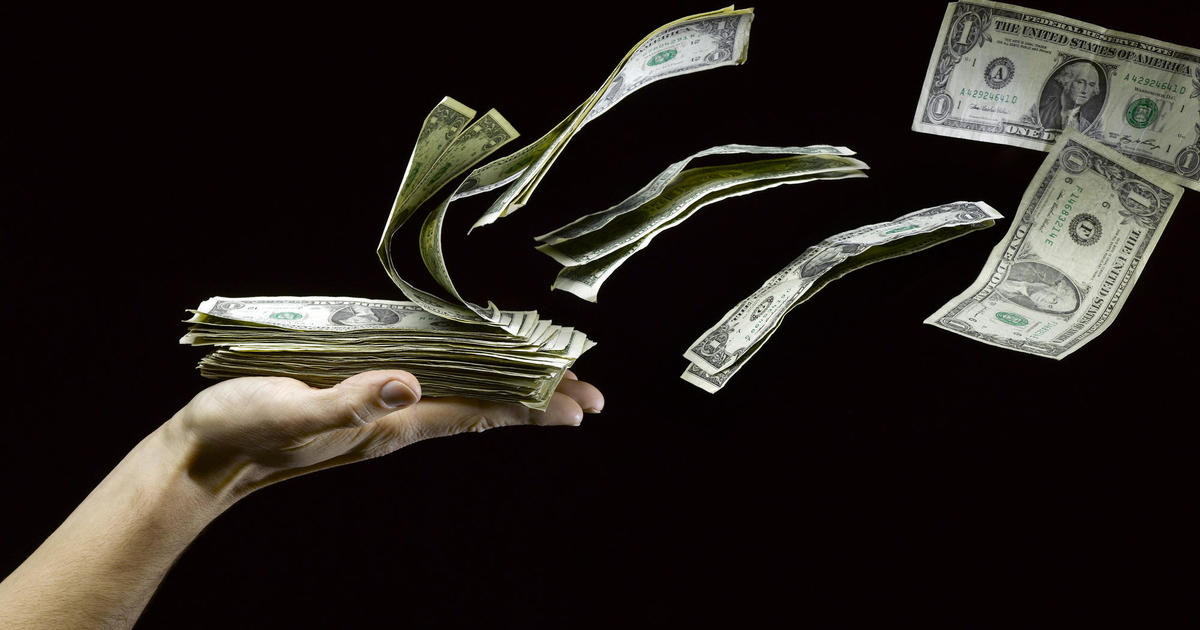Does happiness have a price? For a majority of Americans, the answer is yes — but it doesn’t come cheap.
About 6 in 10 of Americans believe money can buy happiness, according to a new poll from financial services firm Empower. Yet to achieve happiness through financial means, most people say they’d need a significant raise, as well as a big chunk of money in the bank.
Median household income in the U.S. stands at about $74,000 annually, but respondents told Empower that they’d need to earn roughly $284,000 each year to achieve happiness.
And as for wealth, Americans said they’d need even more in the bank to feel content: $1.2 million, to be exact, the poll found. Many people are wealthier than they were a few years ago, thanks to the rise in real estate and stock market values, yet the median net worth of U.S. households stood at $192,900 in 2022, according to the Federal Reserve.
And yet disability is at a whopping $914/month federally and you can’t have more than $2k in your bank or they take away your food stamps and healthcare… a number that hasn’t changed since 1974 and would be $13k if adjusted for inflation. I didn’t choose to be disabled. I paid my taxes when I could work, to prevent suffering; but I’m now living with a family member and selling nudes to afford the rent, bills, vehicle costs, insurance costs, prescriptions that aren’t covered, service dog expenses, etc.
I have a disability as well, and while I am largely able to work I live in terror of taking a turn for the worse and becoming disabled. The costs are horrific and I’m just barely scraping by on what I work my ass off to make.
Sorry, comrade, chronic illness is just ass. Hang in there
If you can make a good wage for several years before you apply, SSDI will go up and won’t be such a low average. Unfortunately, I was disabled after only a few years in the workforce and the most I made, even with a degree, was $15/hr. I wasn’t making enough for long enough to get more than the $914 (the SSI limit). That’s the best advice I can give. If you get SSDI, you’re also allowed to get married without losing benefits. Those on SSI, if married, the income the spouse makes is considered your income and is taken out of your SSI.
Money doesn’t buy happiness. However, it can often buy time or a reduction in stress, which can help one find happiness.
I make a good salary and one of the things that buys my family is the ability to just do what we want to do, within reason. While we still watch our grocery bill (and goddam inflation in food prices sucks), we don’t actually stress over it. We buy a lot of fresh fruit and vegetables and splurge on some name brands here and there (Kerry Gold butter is awesome). This means that we don’t stress over “what’s for dinner”, other than planing out meals for the week. Because, that’s smart and leads to less waste and better eating. We can also say, “fuck it, we’re ordering out” and dropping $50-$100 for the family to eat isn’t going to cause money issues. When we get to the “end of a paycheck” our main stress comes from only putting a few hundred in savings. And we actually have savings. So, I am not worried that the car is going to crap out and we’re suddenly taking on tons of debt at usurious interest rates.Has money “bought” us happiness? No, but life is a hell of a lot better now than it was when we were raiding the change jar to buy something to eat for dinner. Being poor brings a lot of stress with it, and that can make you unhappy.
deleted by creator
In general, money doesn’t buy happiness, but not being strapped for cash does. If you have a good budget, you can be low-stress and happy with a wide array of incomes. If you have a bad budget, even if you make a shitload of money, you will be stressed and much less happy.
owning a 1st gen MR2 would make me pretty happy, i have to say.
The pop-up lights were always a damn cool style (though I’m sure the bills to fix them when they won’t retract/extend anymore was probably what killed them).
they were made illegal due to pedestrian safety. it was literally just two electric motors. there are half a dozen in a single car seat today.
It can’t buy happiness but it can buy an environment that allows happiness to flourish
“Having money isn’t everything. Not having it is.”
To sum up what a lot of other folks are saying:
Money doesn’t buy happiness; money mitigates misery.
If money was no longer a concern, I certainly would be far less stressed and could actually have time to search for real happiness. But what I need to be happy isn’t something money could buy.
Gonna leave this here for the 6/10 who are confused as to what brings you happiness. Pipe away bot.
Median household income in the U.S. stands at about $74,000 annually, but respondents told Empower that they’d need to earn roughly $284,000 each year to achieve happiness.
$74k is a good wage for one person (and an okay wage for a couple) who lives in an area with a decent rental market, minimal college loans, a paid-off car, and good employer-supplied healthcare. It’s when you start factoring in the actual costs of housing, cars, college, and healthcare - or adding in the cost of kids - that things become unmanageable.
Most of America, geographically, is significantly cheaper than people often think it is.
When you can get a 3br for $600, your median income doesn’t need to be that high. Several states have a median income in the $40s - North Dakota is in the 30s, even.
These states are generally rural, as a rule, but they directly impact the national numbers.
If you just pulled cities of, say, greater than 200k people, I’m sure you’d see quite different numbers.
Most of America, geographically, is pretty far away from what people want to experience. Yes, rural is cheap, but there is a distinct lack of theater, variety of culture, and massive distances to anything other than outdoor recreation in those areas. It works for some people, but not for a lot of people.
Not to mention the lack of high paying local jobs. Sure, it is great for a technical person who can work remote and doesn’t want to go to the clubs, but that isn’t everyone.
Right but it does affect the median, which was my point.
$1.2 MM seems crazy to me. With one sudden influx of $200k I could pay off literally every debt I owe, and would have significantly more money than I’d spend just living normally.
With $1.2MM I’d never have to work again, I guess maybe that’s what people are aiming for?
With cost of living in a lot of areas they would still need to work to afford a home, but would have a lot more flexibility and an actual expectation of being able to retire when they want to with 1.2 million.
lol an 1800 sf shitbox that needs updates is 1.2m where i live.
I don’t wanna be rich. I just wanna get by without struggling for once.
I just want to be able to stare off into the distance while pumping gas
I wanna go to the grocery store and not worry that the ‘nice’ brand costs ten cents more.
Many people are wealthier than they were a few years ago, thanks to the rise in real estate and stock market values, yet the median net worth of U.S. households stood at $192,900 in 2022, according to the Federal Reserve.
Isn’t this contradictory?
Many, not most
Seems about right. I hope to retire with 2.5M in the bank. It’ll give a pretty significant income unless I live into my late 90s.
I’m hoping to send my kids to college in the next 15 years, so I don’t ever expect to retire.
Something seems wrong with the result.
To paraphrase “people that earn some money, think they need to earn 4 times as much to be happy. They have never earned that much and never will. Also, they want to save an amount that at 8% return will pay them about what they currently get paid.”
Maybe the survey takers don’t know themselves and think more than they make now will solve things? Also, averages are likely misleading in this case.
I thought the millennial aspirations were a bit extreme, but as a millennial I get it. We had the Great Recession, outrageous prices for college, home prices are out of control.
And I say this as a millennial doing well. We don’t even think about money day to day or paycheck to paycheck, and are saving enough to largely minimize or potentially mitigate our kids needing student loans. But I am still strategically thinking about money and what will happen when the next recession or financial calamity hits, or hyper-inflation wiping us out.
The cost to live has been trying to outrun our income our entire adult lives, so sure, fuck it, double our income then maybe we have a chance to sleep at night even when it’s going well.
deleted by creator












